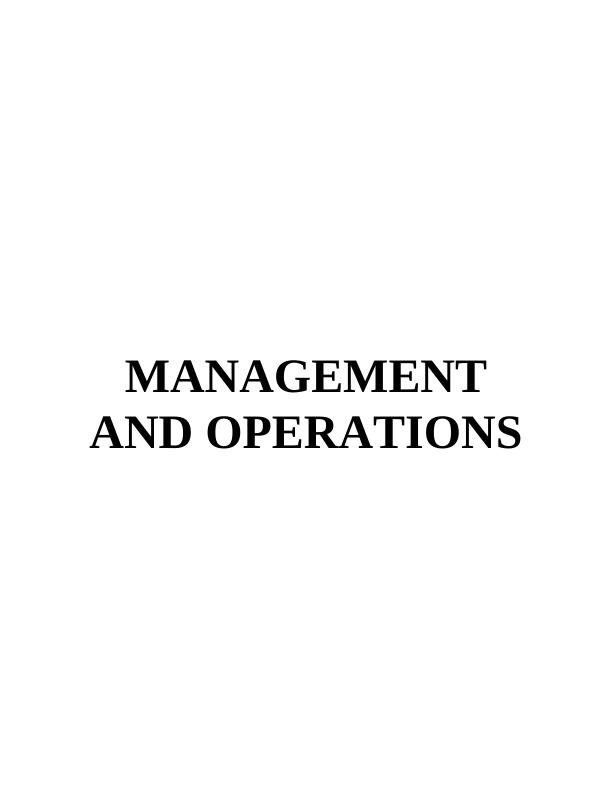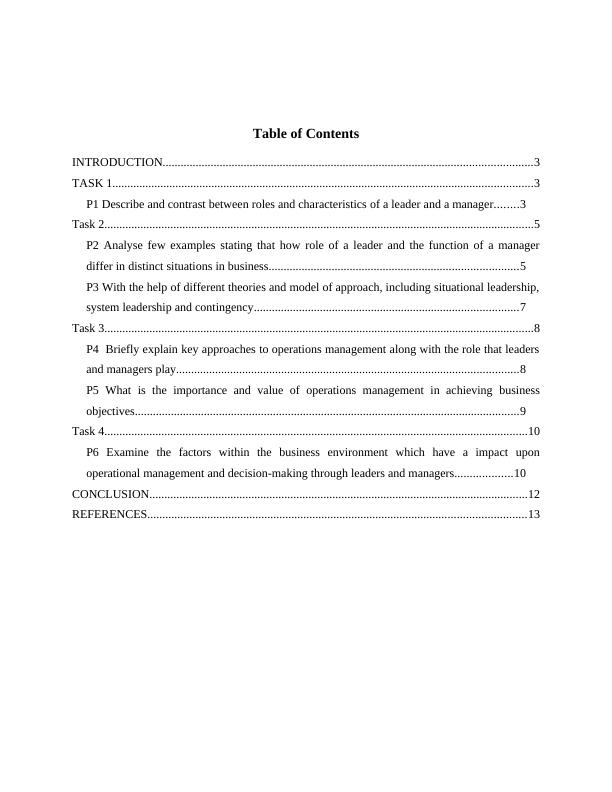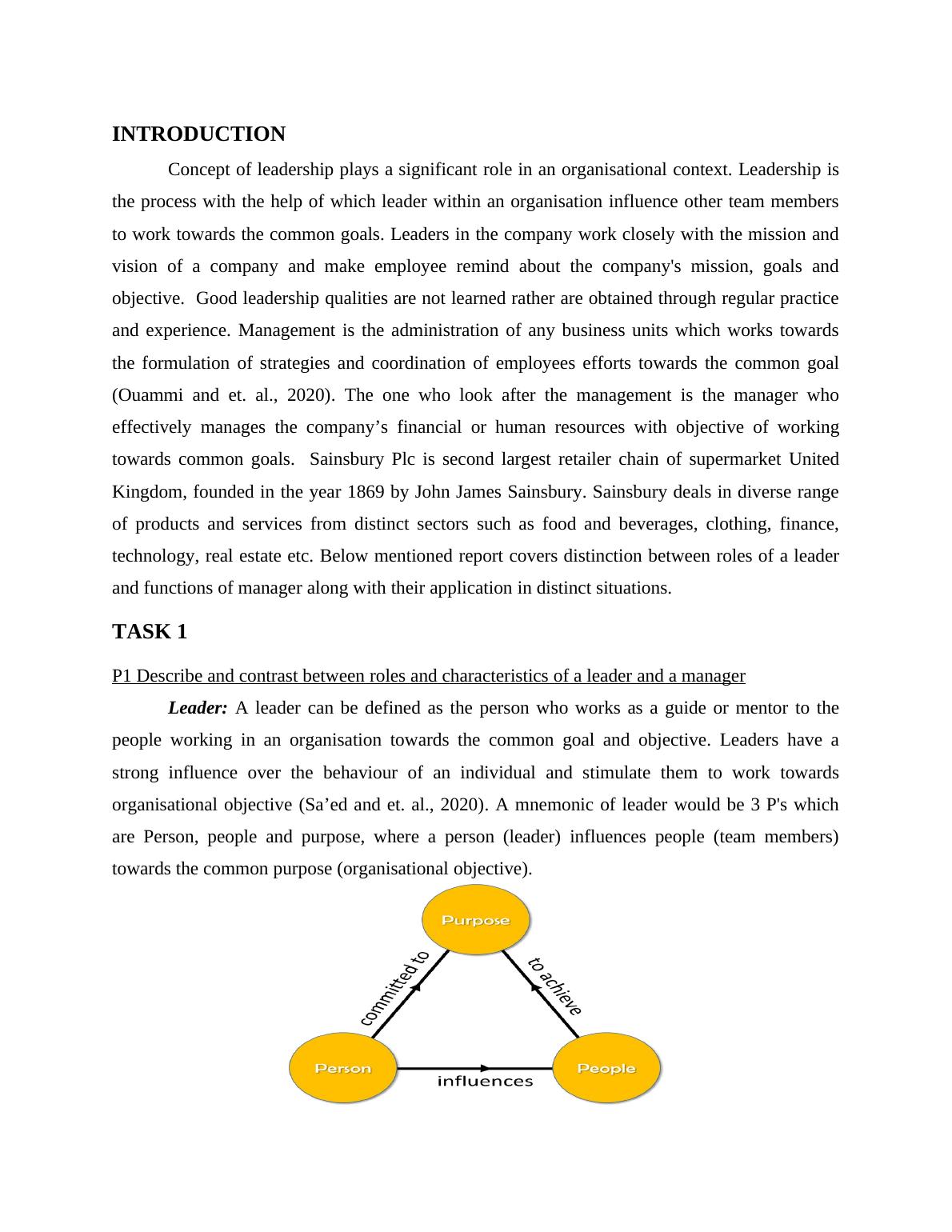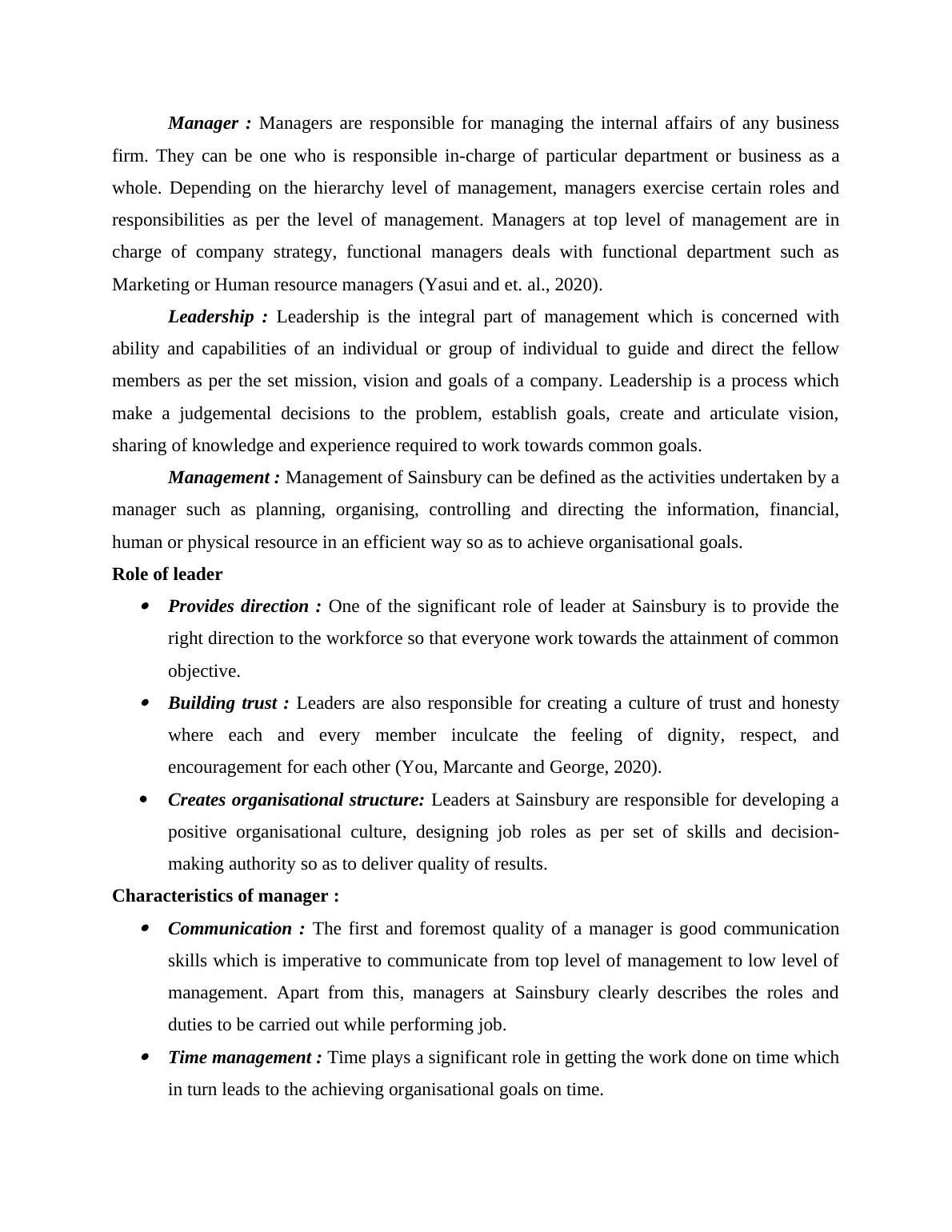Importance of Operations Management in Achieving Business Objectives
13 Pages4276 Words491 Views
Added on 2022-12-14
About This Document
This document discusses the roles and characteristics of a leader and a manager in an organizational context. It explores the differences between the two roles and their application in distinct situations. The document also explains the importance and value of operations management in achieving business objectives, along with key approaches and the roles of leaders and managers in operations management.
Importance of Operations Management in Achieving Business Objectives
Added on 2022-12-14
ShareRelated Documents
End of preview
Want to access all the pages? Upload your documents or become a member.
Approaches to Operations Management and Role of Leaders and Managers
|12
|3757
|29
Roles and Characteristics of a Leader and a Manager in Operations Management
|17
|5766
|162
Functions and Qualities of Leaders and Directors in Management and Operations
|10
|3523
|88
Roles and Characteristics of Leader and Manager in Management and Operations
|13
|3098
|52
Roles and Characteristics of Leader and Manager in Operations Management
|18
|5134
|77
Comparison of Roles and Characteristics of Leader and Manager
|16
|4573
|98




